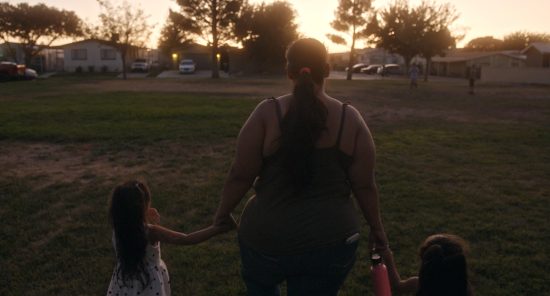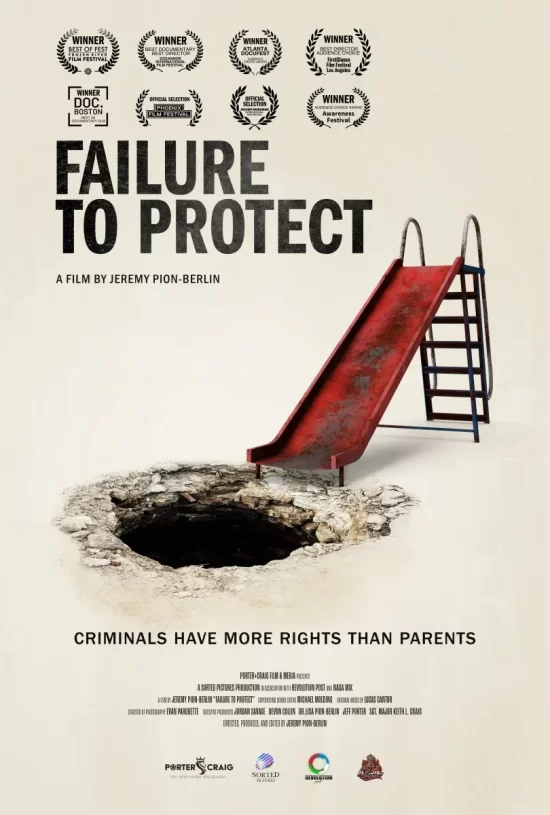Review: Failure to Protect – “An eye-opening film”

Failure to protect refers to a law that can charge a parent for any lack of action that leads to harm of a child. It was a policy devised with the best intention, to protect children from negligence or abuse. At its core, child protective services (CPS) is, unfortunately, an important and vital need, giving kids refuge when the need protection arises. It’s evaluating that need which is the issue, and where many loving parents can get caught up in lengthy legal battles between social workers, the courts and their own families.
Failure to Protect, directed by Jeremy Pion-Berlin, examines the child welfare system in the United States through the lens of three distinct families.
There is Anna, who, after her own daughter was murdered, adopted her 6-year-old grandson. She was formerly in the Air Force and Navy, a special advocate for children in the courts, a preacher. But she now fights to regain custody of Najae who accused her and her partner of abuse when he was attempting to run away. These accusations are later found untrue by the court, but their heartbreaking battle lasts years.
Then there is Rosa who has four children in foster care. Two of her daughters were abused by an ex-partner without her knowledge. After one of them comes forward, all four of her children are taken and placed in foster care, despite the ex no longer living with them.
Finally, there is Ernst, who has three children in foster care, one of whom has special needs. A contractor who got hurt on the job, Ernst and his wife are now caring for their multiple pets instead of their children after one of them previously diagnosed with mental health issues told her cheerleading coach that she had been abused at home. The child’s diagnosis, a contributing factor to the accusations, is never even considered.
Each of these stories is unique, but at their core, they’re familiar to thousands of families. The child protective hotline takes 700-1000 calls per day, and while most of them will not lead to charges, social workers need to investigate every abuse allegation. In some instances, fear will lead to more children being taken away from their families. Specifically, social worker’s fear that if they leave the child in that setting, something worse could happen. In the United States, over 600,000 children spend some time in foster care annually. This is truly a shocking statistic, and Failure to Protect shows how this number over-represents minorities, those in lower socioeconomic brackets, and even those in the LGBTQIA+ community.
Social workers, who genuinely do have a difficult task, often act first and ask questions later, with parents guilty until proven innocent. The burden of proof for CPS is very low, and yet for parents trying to prove their innocence and worth, it is exceedingly high. Jeremy Pion-Berlin follows these families, sometimes for years, as they navigate through the complicated court system.
These parents represent a large number of stories, complex in nature, and always emotional. While the film is mostly told from their perspective, the director also interviews social workers (even the one dealing specifically with Anna’s case), parent advocates, civil rights lawyers and other experts. He shows both sides of the equation, specifically outlining the rules of the court system and how foster care truly works. It’s an eye-opening film that provides insight into the horrific experience a parent goes through when their child is taken, how helpless they feel, and how much struggle is involved in being reunited.
Failure to Protect starts off a little shaky (literally) in some support group footage, but in the end Pion-Berlin crafts a necessary film, one told with clear passion. The director even gets to show his more creative side in the end with some clever super-8 style home videos of the families he has followed.
The film is a relatively straightforward documentary, informative, necessary, and compelling, even if it offers no answers on how to fix a clearly broken system. But, there is no easy fix for a structure where a criminal has more rights than a parent. While there is no doubt that child protective services is needed, and has all the best intentions, innocent children and families are being traumatized in their process. Even in cases where it’s found a child should go home, many still don’t. This isn’t to say there aren’t great social workers out there who truly do wonderful work to provide the utmost care for children in need. There certainly are, but there are great families too. Families that will never be the same again after their entanglements with a system that too often fails the exact people they are meant to protect.

Failure to Protect was released on digital platforms on October 17, 2023.










